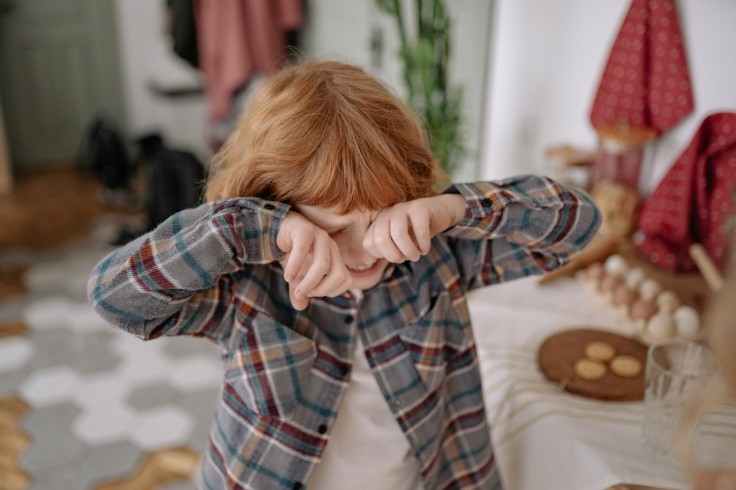
Even kids experience separation anxiety, which must be dealt with immediately before it becomes more serious.
It is normal for children to feel separation anxiety. For some kids, it can be hard to be away from mom or dad when they are left at school or the daycare or with just the other parents.
However, parents need to know that if they are not outgrowing the feelings or if the feelings are growing intensely, something needs to be urgently done because the children might already have a "significant fear" known as Separation Anxiety Disorder (SAD), US News reported.
A member of the American Academy of Pediatrics Council on Communications and Media, Dr. Wendy Sue Swanson, stressed that it is rare that separation anxiety would persist on a daily basis beyond the preschool age. Thus, she encouraged parents to schedule a check-up with the pediatrician if their kids are not adapting to being without them.
Symptoms
The fear of being away from parents leading to the children acting out is normal for babies between nine to 18 months old, according to the Children's Hospital of Philadelphia (CHOP). According to the American Academy of Pediatrics, it can even start as early as reaching four to five months old and ideally ends when kids reach two years old, as they are already old enough to understand that their parents will eventually return after being away, the National Library of Medicine explained.
However, CHOP declared that about three percent of children continue to experience separation anxiety until they reach the elementary years. And the anxiety can again increase during adolescence, with eight percent of teens having separation anxiety due to concerns about the possibility of being separated from parents and caregivers because of violence or accidents.
When this anxiety turns into intense fear, it becomes a disorder and can lead to mental and physical issues that will affect parents' work and the children's school and social lives, the Cleveland Clinic stated.
If separation anxiety is already disrupting the lives of the children, parents, and family, then it might be SAD, the Boston Children's Hospital explained. It also pointed out that an estimated four percent of children are experiencing the disorder.
The symptoms of SAD can vary from physical ones like nausea and vomiting, headache, stomachache, quick breathing, fatigue, and bedwetting to panic attacks, clinginess, and tantrums when it is time to go to school or sleep alone.
How to help your child deal with separation anxiety
Here are six parenting tips from Dr. Swanson for parents and caregivers to help their children deal with separation anxiety and ensure that it does not become serious.
1. Create quick goodbye rituals.
Parents need to keep the goodbye "short and sweet." Thus, they can do hand movements, kisses, or provision of special blankets or toys before leaving. The longer the goodbye, the longer the transition time and the anxiety.
2. Have a routine and be consistent.
A routine can lessen heartache, fear, and anxiety. It will allow the kids to build trust in their independence and parents simultaneously.
3. Full Attention
Parents must give their children full attention when separating. Be loving and affectionate, and then quickly say goodbye despite the cries.
4. Keep the promise.
Stick to the promise of return, and do it on time given to the children. This way, parents can build trust and independence in their children as they become confident in being separated from their parents.
5. Be specific and use terms children will understand.
In discussing return, parents need to be specific so that the children will understand. Speak to the kids based on their terms, like "Mommy/Daddy will be back after nap time."
6. Practice being apart.
Take the children to their grandparent's house and leave them there for a few hours. Schedule playdates and child care with other family members and friends on weekends, even for just an hour.
Dr. Swanson emphasized that parents must allow their kids to "prepare, experience, and thrive" during the separations.
Related article : Separation Anxiety In Babies and Toddlers